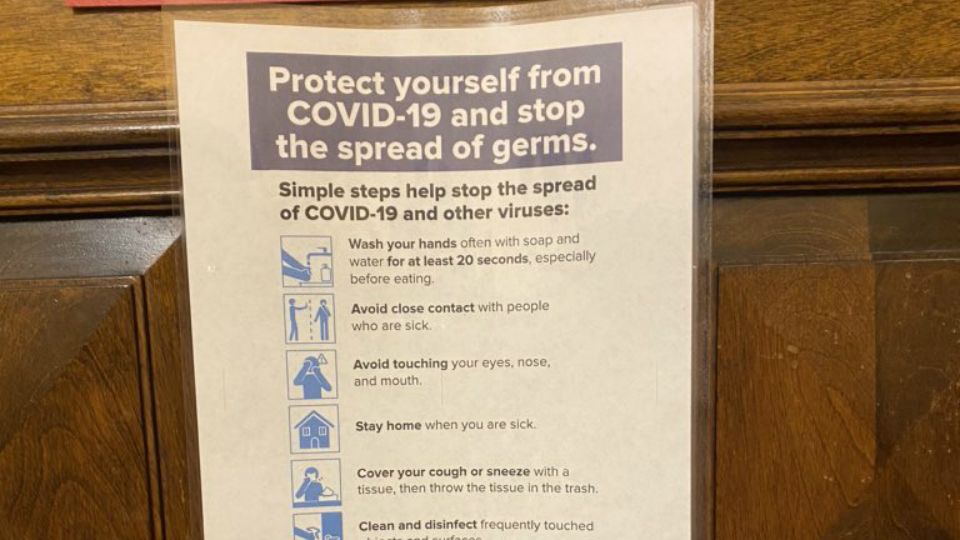Bottles of hand sanitizer are at the ready at the back of the state Assembly chamber.
Signs on bathroom doors and next to elevators remind people to wash their hands for 20 seconds and avoid touching their face.
That, for the moment, is the extent of the reaction to coronavirus at the state Capitol, which on busy legislative session days can host thousands of people who travel from around the state.
For now, there's no expectation the spread of the virus in New York will affect the session or the budget, which is due at the end of this month.
"We have too many things to do," Governor Andrew Cuomo said Friday when asked if the issue will disrupt the session or the budget negotiations.
At the same news conference, Cuomo announced 33 people have now tested positive, up from 22 cases a day earlier.
"I would just say to people in this state use the same precautions, the same preparations when there's a flu epidemic," Assembly Speaker Carl Heastie said this week. "I think people should continue to go about their daily lives."
Still, the virus coming to New York has dominated the first week in March, when typically the focus on the state budget begins in earnest.
Cuomo on Thursday acknowledged the issue has been "all consuming" for him in the last week.
Up until this week, lawmakers had been fielding questions on whether the state's bail law would change and how to handle a gap in Medicaid spending. Cuomo had announced a plan to travel to states that have legalized marijuana to learn about best practices; it's not clear if that trip will actually go forward now.
Lawmakers began the week with a long night of voting on a $40 million bill to fund a coronavirus response effort in the state, along with giving the governor more authority to handle it.
Cuomo has held daily briefings on coronavirus, once three in one day, to provide the latest numbers on positive cases and people who are being isolated or are in self-quarantine.
The Capitol can be something of a petri dish: Its narrow hallways are filled with people to advocate on their issues, lawmakers eating snacks at their desk and, because it's politics, a lot of handshaking.
The city of Albany also has an economic stake in the legislative session: Hotel rooms, conference centers, and restaurants all benefit on session days.
For now, only one event has been cancelled: The Healthcare Association of New York this week announced it had cancelled its lobby day, saying its members wanted to stay close to work in the event they are needed.
Lawmakers return to Albany on Tuesday.


